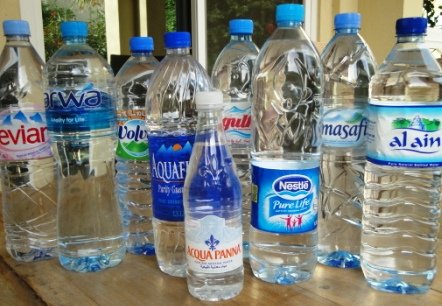 In recent years, the World Bank has published a report on pure water supply, sanitation, hygiene and poverty. It has been said that 70 million people in this country are drinking unsafe water. The population of Bangladesh is now more than 16 crores. So the report of the World Bank takes place in time, because more than half of this country is deprived of safe water. But it is also true that there is a lack of pure water in various areas including the southern region, and in the last decade, there are various government initiatives and efforts in this regard. It may be mentioned here that, 200 years ago, the importance of 'Surface water' was given to Dhaka. Even a few decades ago, people used water from sources of wells, rivers, ponds, water bodies etc. But from the sixties, the use of suddenly ground water increased. This tendency arises due to the epidemic of various water borne diseases, including cholera. But currently there are various scientific methods to clean cholera controlable and contaminated water at hand. When the tubewell was introduced in the process of using underground water, arsenic was accompanied by various problems. After this, under Deep tube age, the level of underground water dropped so low that it increased the lack of pure water during the summer. Therefore, now everyone is stressing the use of Surface water or ground water.
In recent years, the World Bank has published a report on pure water supply, sanitation, hygiene and poverty. It has been said that 70 million people in this country are drinking unsafe water. The population of Bangladesh is now more than 16 crores. So the report of the World Bank takes place in time, because more than half of this country is deprived of safe water. But it is also true that there is a lack of pure water in various areas including the southern region, and in the last decade, there are various government initiatives and efforts in this regard. It may be mentioned here that, 200 years ago, the importance of 'Surface water' was given to Dhaka. Even a few decades ago, people used water from sources of wells, rivers, ponds, water bodies etc. But from the sixties, the use of suddenly ground water increased. This tendency arises due to the epidemic of various water borne diseases, including cholera. But currently there are various scientific methods to clean cholera controlable and contaminated water at hand. When the tubewell was introduced in the process of using underground water, arsenic was accompanied by various problems. After this, under Deep tube age, the level of underground water dropped so low that it increased the lack of pure water during the summer. Therefore, now everyone is stressing the use of Surface water or ground water.
The WB report says that 41 percent of the water sources in Bangladesh contain harmful E-coli bacteria. The presence of these bacteria in the water supplied by pipes is about 82 percent. And tubewell water has 38 percent. This e-cola bacteria is largely responsible for stomach and intestinal inflammation. On the other hand, 13 percent of our water is in arsenic. From the overall monitoring of the report, it is seen that there is a link or connection of poverty with the use of contaminated water. People of the upper and middle class are aware of pure water and they are ready to spend extra money for this. On the other hand, there is less awareness among the poor about this. We know, low quality water reduces efficacy. It is also responsible for the child's malnutrition. Therefore, in the poor areas where there is lack of pure water, special priority should be taken in priority. There is a need for improving pure water supply and sewage system in educational institutions, health centers, various terminals and workplaces. It is necessary to increase allocation in this budget in the national budget.
Due to polluted water, it is not only diarrhea, typhoid or dysentery, it is found in modern studies, due to which there are various diseases of the skin including diabetes, kidney and liver diseases and gastric. Therefore, we must give greater importance to the safe management of safe water. For this, it is necessary to take steps to save rain water, dredging river, filtration of saline and pond water, excavation of ponds and deep wells and drainage of waste and contaminated water by creating reservoirs in all areas including industrial and residential areas.
thanks for your useful article.